 Petzlover
Petzlover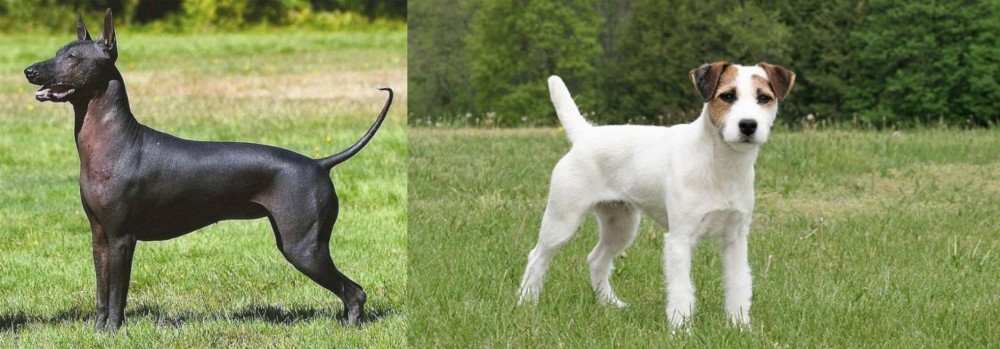 Hairless Khala is originated from Mexico but Jack Russell Terrier is originated from United Kingdom. Both Hairless Khala and Jack Russell Terrier are having almost same height. Hairless Khala may weigh 6 kg / 14 pounds more than Jack Russell Terrier. Both Hairless Khala and Jack Russell Terrier has almost same life span. Both Hairless Khala and Jack Russell Terrier has same litter size. Hairless Khala requires Moderate Maintenance. But Jack Russell Terrier requires Low Maintenance
Hairless Khala is originated from Mexico but Jack Russell Terrier is originated from United Kingdom. Both Hairless Khala and Jack Russell Terrier are having almost same height. Hairless Khala may weigh 6 kg / 14 pounds more than Jack Russell Terrier. Both Hairless Khala and Jack Russell Terrier has almost same life span. Both Hairless Khala and Jack Russell Terrier has same litter size. Hairless Khala requires Moderate Maintenance. But Jack Russell Terrier requires Low Maintenance
 The Hairless Khala is from a number of Latin American countries, and these countries have a variety of these hairless hounds.
The Hairless Khala is from a number of Latin American countries, and these countries have a variety of these hairless hounds.
The dogs are known by different names. Khala is the Bolivian Quechua Indian name and it means 'no clothing' - an absence of fur. Both Central and South America have their hairless dogs, descendants of ancestral dogs owned by the Incan Empire.
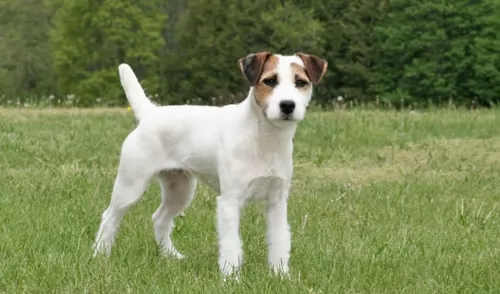 The popular Jack Russell Terrier was developed in Devonshire in the south of England in the late 1800's so as to hunt foxes.
The popular Jack Russell Terrier was developed in Devonshire in the south of England in the late 1800's so as to hunt foxes.
Often believed to be the Parson Russell Terrier, the Jack Russell Terrier was developed by Parson John Russell. This is where the dog gets his breed name from. Some people get the Jack Russell Terrier a little bit mixed up with the Parson Russell terrier, when it fact its actually a different breed, but sharing a common ancestry.
The Jack Russell Terrier is smaller than the Parson and bigger than the Russell Terrier. The breed became known in the U.S. by the 1930s and the Jack Russell Terrier Association of America wanted recognition by the American Kennel Club, which was granted in 2000.
 There are 2 kinds of hairless Khalas – the Medio one which is a short legged dog which stands at roughly 36 – 41cm in height and weighs roughly 6 – 14kg. The other kind of khala is the Hairless Khala Grande, a long legged type.
There are 2 kinds of hairless Khalas – the Medio one which is a short legged dog which stands at roughly 36 – 41cm in height and weighs roughly 6 – 14kg. The other kind of khala is the Hairless Khala Grande, a long legged type.
Although the dog is hairless, you'll find some hair on the top of his head. For sake of space we'll refer to the Medio variety, a medium-sized hound with hairless skin which is dark grey in color.
The Hairless Khala is a friendly dog with his family but tends to be reserved with strangers. He gets on well with children in the home and because he isn't a particularly energetic dog, elderly people also find that he makes a super pet for them.
He is able to adapt easily to city- as well as country living. You need to be careful with him and not allow him out in the garden in the boiling sun as his skin can burn badly. Then again, without fur, he also tends to get cold easily.
He has dark brown eyes and the ears are fairly large in size and erect. He has a chest which is deep and broad and his tail is set fairly low and is held according to his mood.
He is an intelligent dog, and therefore easily trained. He is a loving, loyal dog who is capable of bonding closely with his human family.
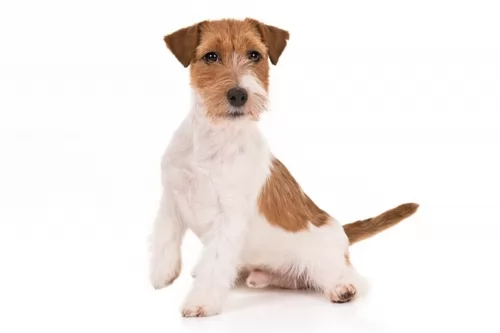 The Jack Russell Terrier is a small dog that weighs between 6 and 8kg and stands at between 25 – 38cm. The body length of the dog should be in proportion to the height.
The Jack Russell Terrier is a small dog that weighs between 6 and 8kg and stands at between 25 – 38cm. The body length of the dog should be in proportion to the height.
He is essentially a white dog with orange or fawn colored patches. The coat is mostly smooth and short, but the coat can also be longer and rough or it can be broken which is a combination of rough and smooth. Regardless of coat type, they are dense, double coats which will require brushing at least twice a week to remove loose hairs. He may also be tri-colored such as being white with black and tan patches.
He has alert, bright dark brown eyes and ears which are somewhat erect and which flop over at the tips. The tail has always been traditionally docked, giving him an attractive, compact look about him but unfortunately the tail is often left long on the dog these days.
Your Jack Russell Terrier is a lively, tenacious, bold, fearless, feisty, cheeky, confident, independent, intelligent and full of life dog. He is super energetic and exuberant, spirited and full of personality.
There are some dog owners who are exhausted by him and would prefer a more quieter dog breed as their companion. Nonetheless he has some excellent characteristics such as being a totally devoted and loving dog.
It is why it is a good idea to have him trained and socialized as it calms him down and makes him more obedient. He is very intelligent and training him will be easy.
 The Hairless Khala will make you an excellent pet, and children and the elderly are attracted to the dog because it is loving and docile. They are aloof with strangers, but training and socialization make him far more tolerant of strangers.
The Hairless Khala will make you an excellent pet, and children and the elderly are attracted to the dog because it is loving and docile. They are aloof with strangers, but training and socialization make him far more tolerant of strangers.
The Hairless Khala is an adaptable dog breed, and will adapt well to life in the city or in the country. Found throughout the Latin American nations, today he is essentially a companion dog, loving to be a devoted friend to his human family.
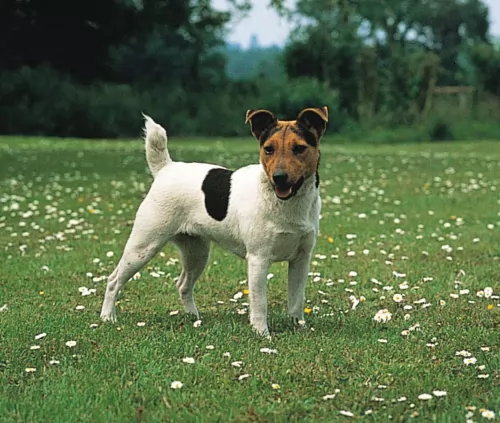 With loads of vibrant personality, the energetic Jack Russell Terrier has got so many wonderful characteristics to his name – devotion, intelligence, charming, lively, playful and he is an entertainer – you’ll always be laughing a him.
With loads of vibrant personality, the energetic Jack Russell Terrier has got so many wonderful characteristics to his name – devotion, intelligence, charming, lively, playful and he is an entertainer – you’ll always be laughing a him.
You do need to pay him attention – you can’t just plonk him in your backyard and forget about him. He wants your love and attention and ignoring him can lead to problem behavior such as obsessive barking.
Give your Jack Russell Terrier all the love and care he needs, and you’ll have an exceptional pet and friend.
 The life expectancy of this dog is 10-14 years when he is treated well. The Hairless Khala is a robust dog breed but even so, there are diseases to look out for -
The life expectancy of this dog is 10-14 years when he is treated well. The Hairless Khala is a robust dog breed but even so, there are diseases to look out for -
Skin allergies are one of the reasons you may have to take your Hairless Khala to the vet. These sorts of skin allergies can be frustrating for a dog because the skin is irritated and itchy and he may have scaly areas or red bumps on his skin. If your dog is licking and scratching frantically, you will need to get him to the vet.
Periodontal disease is inflammation of the gums, and if food and bacteria accumulate on the gums, it forms plaque and transforms into calculus, leading to gingivitis. Check your pet's teeth regularly and also brush them with special canine toothbrush and toothpaste at least 2 or 3x a week.
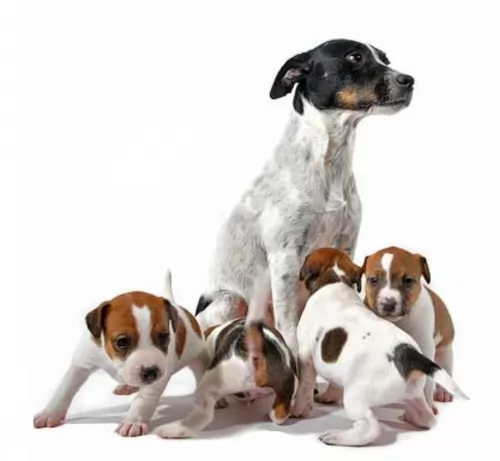 This particular dog breed has a reputation for being healthy and living to a good age such as 16 or 17 years of age. Of course he needs to be given proper care to reach such a good age.
This particular dog breed has a reputation for being healthy and living to a good age such as 16 or 17 years of age. Of course he needs to be given proper care to reach such a good age.
Some common dog disorders you might want to be aware of are -
Lens luxation is actually a common hereditary disorder in these dogs, but even so, with good care, your dog isn’t likely to battle with it. What happens is that the lens in the eye becomes displaced. There are two types, with Posterior luxation being the lesser severe one.Treatment is available.
Patellar luxation is an hereditary disorder affecting the knees of the dog. The kneecap slips off the groove where it sits and you may notice your dog running while holding his hind leg in the air. It can sometimes slip back in place and then you see your dog running in his usual way. It becomes more serious when it affects both legs.
 He isn't a super energetic dog but still, he will need to be taken for a walk every day.You can also include typical games that all dogs love – fetching a ball or pulling on a rope.
He isn't a super energetic dog but still, he will need to be taken for a walk every day.You can also include typical games that all dogs love – fetching a ball or pulling on a rope.
Because of the dog having little or no hair, they are considered fairly hypoallergenic and also low maintenance. You'd need to brush a dog with fur, but a hairless dog requires different grooming.
Speak to your vet about bathing your dog, the type of body wash to use and how frequently it should be done. Because your dog is hairless, he may require a sun cream in the Summer and a jersey in the Winter.
He will also need his nails clipped and his teeth brushed as part of his grooming process.
He may not have much hair, but when it comes to diet he is much the same as any other dog. If you feed him commercially manufactured food, always choose the best quality one in accordance with his age, height and activity levels.
Home-made food is always a welcome treat for your pet, but whatever you feed him, make sure it has the necessary minerals and vitamins to ensure his health. Essential fatty acids will be needed to keep the skin moist. With too much washing, the skin of these dogs will become irritated, dry and flaking if he doesn't received a nutritious, balanced diet. Make sure he has constant access to fresh, cool water.
When in any doubt as to how to look after a hairless dog, speak to your vet.
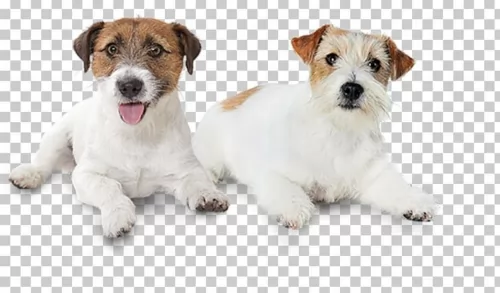 The Jack Russell Terrier isn’t just a small dog that can be left to his own devices. He will need proper training and socialization early in life to make him obedient and better to get on with.
The Jack Russell Terrier isn’t just a small dog that can be left to his own devices. He will need proper training and socialization early in life to make him obedient and better to get on with.
He may be a small dog, but he certainly won’t do in the city where he is cooped up in a place with a handkerchief of a garden. He needs lots of space to run and play. He wants his human family to join in with walks, hikes, ball games and swimming.
You can buy excellent commercially manufactured dog food which caters for energetic small dog breeds like the Jack Russell Terrier.
Once you have selected the best one for your pet, with dry kibble being better in terms of dental health - you can also add in some brown rice, vegetables and cooked chicken. This is highly beneficial to all dog breeds. A little bit of raw meat can sometimes be added in too.
The bottom line is to to prevent your pet from eating foods high in preservatives, additives and fillers. Never leave your pet without a constant supply of fresh, cool water.